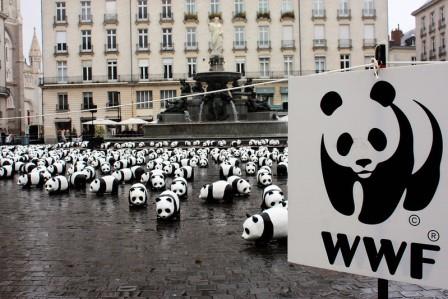WWF Mexico presents “Communication for change” to combat food waste and promote behavioral changes in the face of the environmental crisis
The World Wildlife Fund (WWF) in Mexico presented this Monday the initiative “Communication for Change” to combat food waste in Mexico, where a third of food is thrown away, and promote behavioral changes in the face of the environmental crisis.
“The overall objective was to raise awareness among young people about the impact of human activities on nature, particularly to promote behavioral changes and above all to provide future communicators with communication tools based on our own experience,” said Ana Laura de la Torre, coordinator of the project at WWF Mexico, at a press conference.
The initiative, organized in conjunction with the Universidad Anáhuac, combined communication, education and environmental psychology strategies, and focused on promoting the reduction of food waste among more than 400 university students.
According to figures cited by the specialist, it is estimated that in Mexico there is an annual food waste of 94 kilograms per capita, a figure higher than the world average of 74 kilograms, and whose contribution to the loss of biodiversity and climate change is significant.
“We are living a double environmental crisis of biodiversity loss and climate change, and at the center of this crisis is the way we produce and consume our food,” he said.
The initiative used as its main tool “interventions,” a method in which environmental psychology principles and techniques are applied to encourage behavioral change.
This, De la Torre explained, includes influencing the mechanisms of action that make it easier for people to change their habits and includes a systematic evaluation.
The project, which brought together the efforts of WWF, the Faculty of Communication of the Universidad Anáhuac México and the University of Bielefeld (Germany), generated information that establishes empirical bases to explain habits related to food and biodiversity conservation in a Mexican context.
The results
Through a measurement model, provided by the University of Bielefeld, data were generated to identify which action mechanisms are stimulated to motivate sustainable behaviors among young people.
Such mechanisms range from positive emotions to social norms, attitudes or moral convictions.
The project showed that food waste generated neither negative nor positive emotions among participants.
After an “intervention”, based on 20 psychological techniques to change behavior, it was possible to “activate” awareness among young people by recognizing themselves as part of nature and reinforced beliefs that it is necessary to change behavior in order to be more sustainable.
In addition, a “Guide to promote pro-environmental behaviors: an approach from communication and education” was developed, in which lessons learned and methodology are shared so that similar “interventions” can be applied in university institutions in Mexico and Latin America.
Jorge Rickards, general director of WWF Mexico, explained that food waste is one of the indirect factors that affects the environment, but there is little awareness.
In fact, he pointed out, one third of food is wasted in Mexico, so it was important to mix scientific knowledge with Mexican culture and apply it to young people.
San Miguel Times
Newsroom

